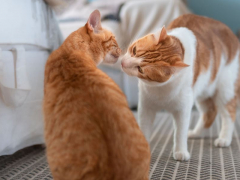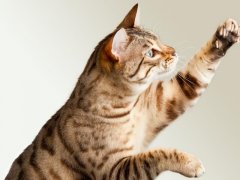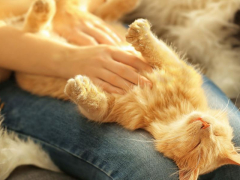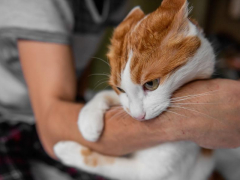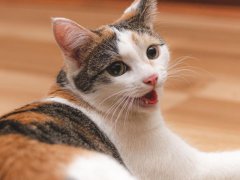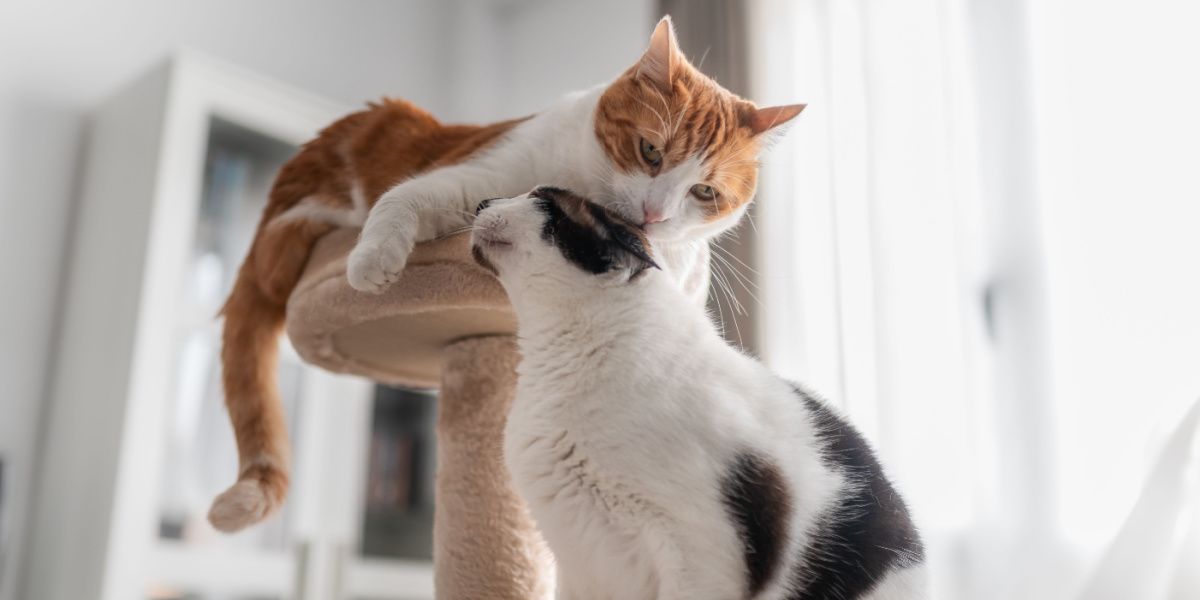
Cats have all sorts of curious habits, and eating earwax is certainly one of them. But it may be more common and far less strange than you think. It can be perfectly normal for cats to be attracted to this odorful, protein-packed substance – but a sudden interest in ear discharges may be the sign of underlying problems.
Where Does Earwax Come From, and What Is It?
You’ll be pleased to know that earwax is not quite as disgusting as we are led to believe. When broken down into its core constituents, it is actually quite harmless – and even nutritious! Special glands in the outer ear canal are critical in producing earwax.
Ceruminous glands produce a modified form of sweat that has properties to fight bacterial and fungal infections, and sebaceous glands secrete the oily component. As surface skin cells (keratinocytes) die away in the deeper ear canal, they are shed and move along and out of the ear. This mixture of dead skin cells, hair, fatty acids, and a small amount of cholesterol creates a protein and energy-packed treat, should your kitty choose to indulge!
Why Do Cats Love Earwax?
There are a few reasons why your kitty may be keen on this unusual snack.
They Love the Taste
Cats love meat, and anything with a similar nutrient content is also fair game. Eating meat is not just a preference, though. Cats’ wild ancestors were obligate carnivores. They needed to eat meat to fulfill their nutritional requirements and survive – and this remains true of pet cats today. Domestication may have brought about some digestive adaptations. Still, it is generally accepted that a meat-based diet packed with protein has many health benefits for our domestic kitties.
Not only are cats meat lovers, but they can also detect other food sources high in protein and fats. And so, it is easy to understand why your cat might view earwax as a tempting and convenient snack. It seems your cat is smarter than you realized!
Earwax Smells Good, Too
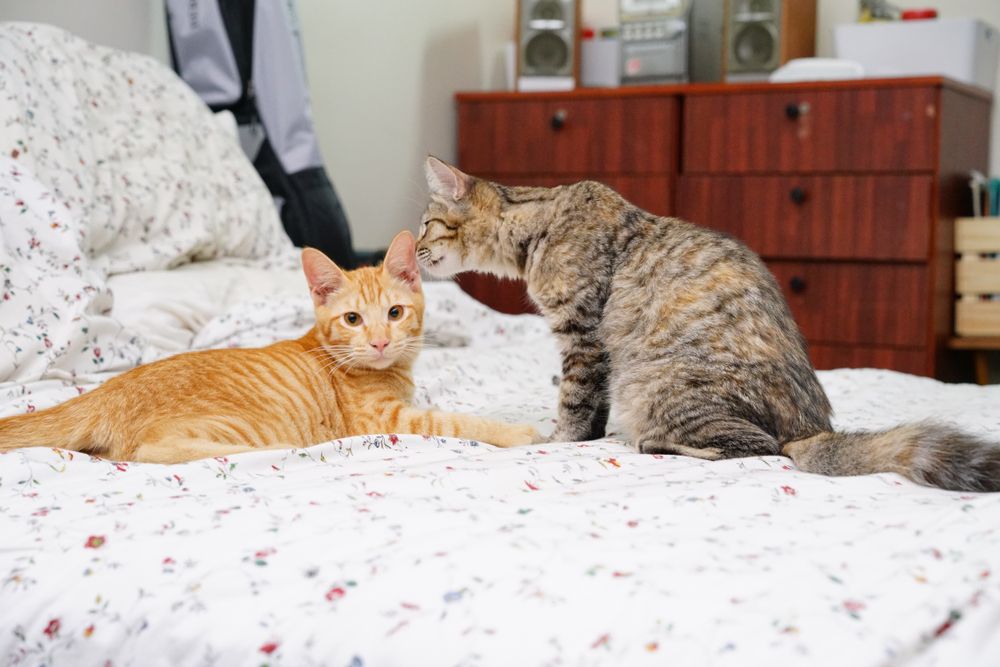
Cats use scent to identify other cats, animals and people and to communicate with each other.
Cats have a highly developed sense of smell. In fact, their olfactory (smelling) system is so developed that it is believed they have 100 times the number of scent receptors in their noses than humans. For cats, smell is the most important of their senses.
It can bond them to their mother and companions, help them seek food and prey, and warn them about nearby danger. Through this sense, they can detect new protein sources, including ear wax, which some cats find hard to resist.
While their sense of smell is incredible, taste is somewhat less important. Cats have far fewer taste receptors than humans and, therefore, do not taste flavors in the same way that people do. Interestingly, their lack of taste buds means domestic cats cannot detect sweet flavors. However, they have heightened sensitivity to proteins – when they consume it, their brain responds positively. And so, whenever your cat tastes earwax, their brain will receive pleasurable messages.
It Might be a Grooming Habit
Grooming is so important to cats. If your cat is choosing to groom you (albeit by licking your ears!), then you are very lucky – your cat has accepted you, wants to be close to you, and they don’t feel threatened.
Allogrooming is when cats groom other members of their social group or cat colony. Grooming others’ ears can provide reassurance and affection, mirroring how mother cats groom their kittens. But it can also demonstrate dominance, where a higher-standing cat grooms a subordinate’s face and head. Grooming is a peaceful and safe way to display hierarchy.
So, if your cat tends to lick your face, neck, and ears, it is probably just a sign of affection or a means to communicate with you. The fact that there is some tasty earwax to enjoy might just be an added bonus!
Watch Out for Ear Disease
If your cat has developed a sudden, newfound passion for grooming their playmate’s ears, this might indicate a problem with that ear. Ear infections are less common in cats than dogs due to the open nature of the ear canals, but they can still occur. Kittens can be prone to ear mites, leading to a build-up of dark, crumbly wax.
Often, if ear diseases such as otitis externa (ear canal inflammation) or infection are present, the ear will smell different. This new odor might attract your cat to the ear and lead to excessive licking. The other cat might be more receptive than usual as this grooming might give them some relief from any pain and itchiness.
Common symptoms of ear disease include:
- Red and inflamed ears
- Funny smell
- Head shaking
- Head is tilted down on one side
- Rubbing their ear
If your cat is showing these signs, it is best to get them checked by your vet. The veterinarian can examine the ear canals carefully with an otoscope. If they are concerned about the ear, treatment may be prescribed. It is essential that your other kitty does not continue to try to wash that ear out themselves. Not only will it worsen the ear infection, but ear products might cause drooling and nausea if licked and ingested.
How Can I Stop My Cat From Eating Earwax?
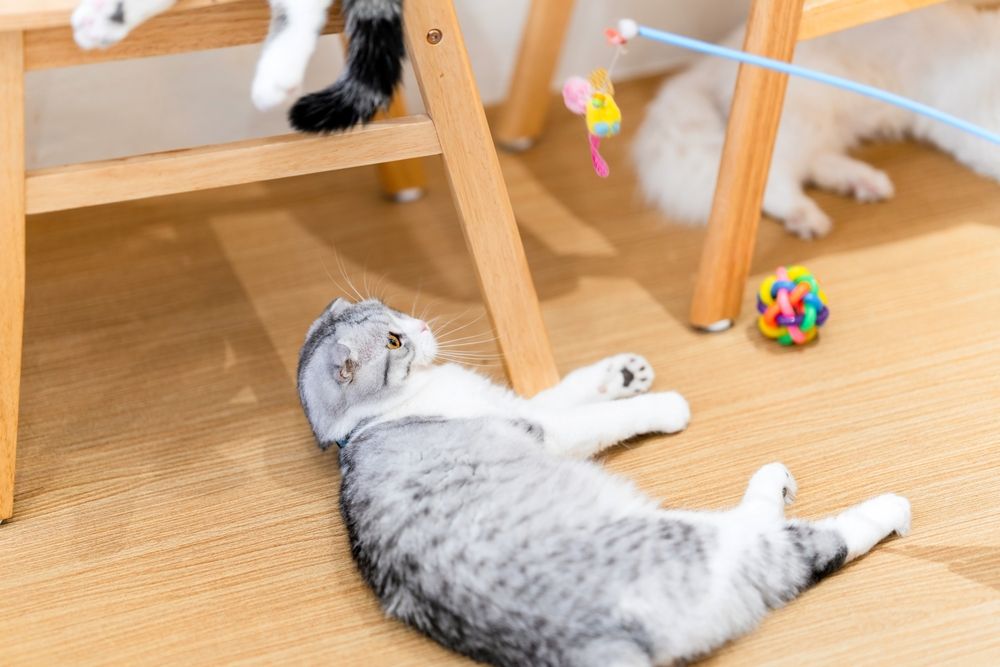
If a cat is displaying an unwanted behavior, always try to distract and replace with a more appropriate behavior rather than punish them or shout.
When your cat has a strong drive for an instinctive behavior, it can be hard to stop them. Try redirecting the licking toward other rewarding activities, such as new toys or puzzle feeders. Smelly treats can do the trick too. Some cats love textured licking mats which entice them to spend time licking canned cat food from all the cracks and crevices.
If you’ve seen your cat nibbling at Q-tips (cotton ear cleaning buds), this might be a bit of a worry. Cotton earbuds, ear pods, ear plugs, or anything that smells of delicious protein-filled earwax might appeal to your kitty. But these bite-size items could cause an intestinal obstruction if they are eaten. It’s best to stop access to these objects altogether by placing used Q-tips in a trash can that has a lid and earbuds in a secure case.
Cats should also be prevented from licking at another cat’s or a person’s ears if they have been using a cleaner or medicated drops, so that they do not ingest any of this solution.
Conclusion
As you can see, eating earwax is generally absolutely fine and completely normal for our pet cats. However, there are circumstances where you need to be a little more vigilant and divert your cat to other behaviors.
Always be gentle and reassuring with your cat when they are doing something that could be harmful and never reprimand them. Eventually, if they are given enough distraction, they may decide that there are other more exciting things to do than to spend their time licking your ears!
Related Conditions:
-
https://icatcare.org/advice/allergies-to-cats/
-
Verbrugghe, A., Hesta, M. (2017), Cats and Carbohydrates: The Carnivore Fantasy? Veterinary Science 4(4), 55
-
Wright, T. (2015), Ear wax. British Medical Journal Clinical Evidence. 0504
